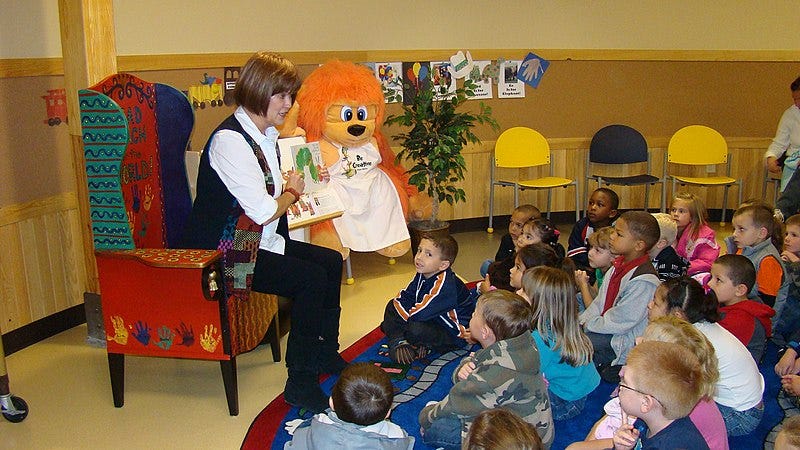Complex Simplicity
The (Lost?) Art of the Picture Book
Lots of people flirt with the idea of writing a children’s picture book; I certainly have over the years. On the face of it, it seems much easier than writing a novel. I mean, it’s just so much shorter, right? But I realized many years ago that writing a really good picture book, a picture book for the ages, would actually be quite difficult. It takes a certain kind of genius to produce, with few words, a story that is dreamlike, whimsical, or just plain fun that also imparts life lessons subtly and with enough wonder and lightness that the reader doesn’t realize he or she is being taught a lesson.
The “lessons” in books like The Snowy Day— the joy of solitude?— or The Very Hungry Caterpillar are so sophisticated, subtle, and/or ambiguous as to almost be invisible, while books like the Frog and Toad series, several Dr. Seuss titles, George and Martha titles, Rosemary Wells’s picture books about Max, The Giving Tree, Swimmy, or Martha Speaks are more forthright about imparting life wisdom while at the same time being incredibly engaging stories. It may be true that all children's books are inevitably didactic, but people seem to prefer "stories that are intended to entertain and delight first and foremost."
There is definitely a place for highly didactic picture books— sometimes a parent wants a book that is explicitly about divorce, for example, or about manners— but I wonder if picture books generally are becoming more didactic over time, and if so whether that could encourage black and white thinking in children. According to this blog post:
…if you are looking for a book that is going to foster interesting, open-ended, and authentic discussion… you wouldn’t want to use a text that is strongly didactic. The discussion will usually fall flat, or move into other responses about the “lesson”.
Students who are more advanced thinkers often prefer more open-ended books because they allow for a wider range of interpretations and thinking.
Do librarians (or parents) have the impression that current children’s picture books are becoming more didactic, or can they provide examples of picture book titles, authors, and series that are more open-ended? How about trends in Caldecott winners? My last stint as a children’s librarian was in 1998, so I would be interested to hear about recent trends from those with more experience.
To promote viewpoint diversity, Heterodoxy in the Stacks invites constructive dissent and disagreement in the form of guest posts. While articles published on Heterodoxy in the Stacks are not peer- or editorially-reviewed, all posts must model the HxA Way. Content is attributed to the individual contributor(s).
To submit an article for Heterodoxy in the Stacks, send an email with the article title, author name, and article document to hxlibsstack@gmail.com. Unless otherwise requested, the commenting feature will be on. Thank you for joining the conversation!
Top image: Bonner Springs Library Reads for the Record 2009 (4047217262).jpg/ Wikimedia Commons


Yes, children's books are becoming more didactic. Some general consensus among the few children librarians I have spoken with was that these books are not appealing to children. They want to read silly things like Dogman.
I do research on parent-child picture-book sharing :) I hadn't thought they were becoming more didactic. But there is a Social Justice genre of children's picture books which seems a little like indoctrination!